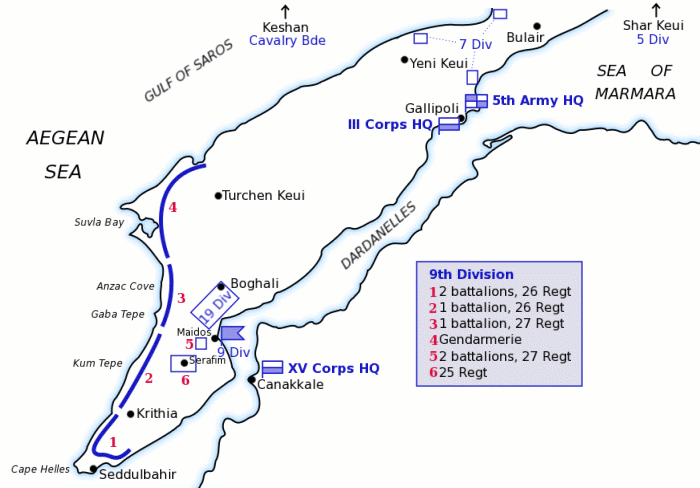
That’s when the First Lord of Idiocy came up with the audacious big idea of invading Turkey with British, French, and the Australian/New Zealand Army Corps troops (ANZAC) at landing zones Helles and ANZAC coves on Gallipoli. Since the Navy failed, he postulated that the armies could approach over land and destroy the defending naval guns at the Dardanelles choke points. Then by taking Constantinople, they could shut Turkey out of the war and gain passage finally for the Russian naval power captive in the Black Sea.
Question: what brand of cigarettes did Churchill smoke?
Ok, that was really stupid, I know… Keep in mind this bold plan was intended to be a power move to help break up the miserable trench warfare stalemate out on the Western front where the big war was going on. Churchill failed to factor in one really big element: THE TURKS.
Winston, in all his pomposity, regarded the Turk an inferior Untermensch and poor excuse for a soldier. Preparation of the battle space was not a big thing in Churchill’s bag-o-tricks. Let me put it this way: During WWII the allies actually traveled to the Normandy Coast in a miniature sub. From that sub, they launched some bada$$ Nave SEAL legacy brothers who swam ashore at night and took beach samples from Omaha Beach to determine composition and support capabilities.
British officers sailed by the Gallipoli landing beaches and drew sketches… ok, great.
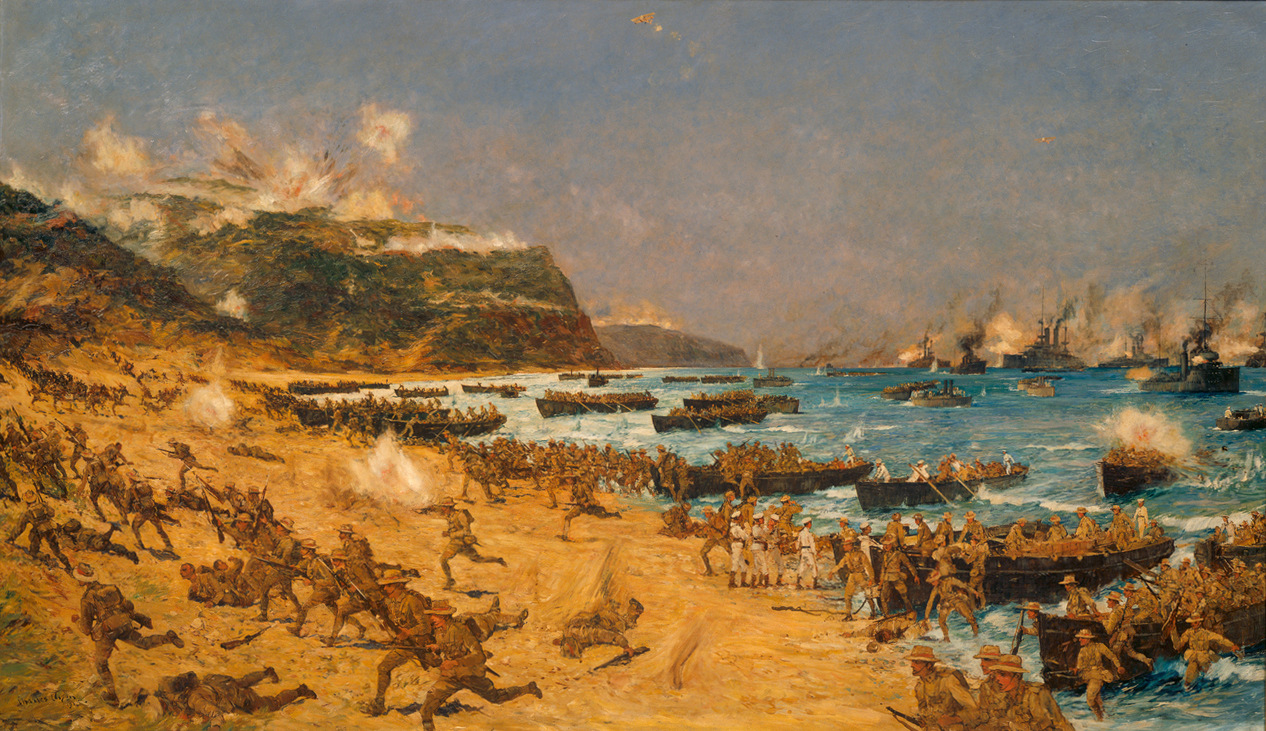
It is an after the fact matter of fact that the terrain of the peninsula grotesquely favored the defense, and rudely spanked the offense. The brass’ sketches were charming, but they failed to include such insignificant details such as:
Barbed wire
Machine guns
Trench Networks
Mortar pits
Minefields
Howitzers and other long-range supporting fire batteries
Oops!
Here’s another thing that I find disturbing: the men were required to storm their landing beaches… in row boats. When I think of storming a beach, a row-boat doesn’t even register in my mental inventory. In every engagement, the Brits, French, Australian New Zealand Army Corps (ANZAC) faced multiple interlocking crossfires from then state-of-the-art Maxim machine guns.
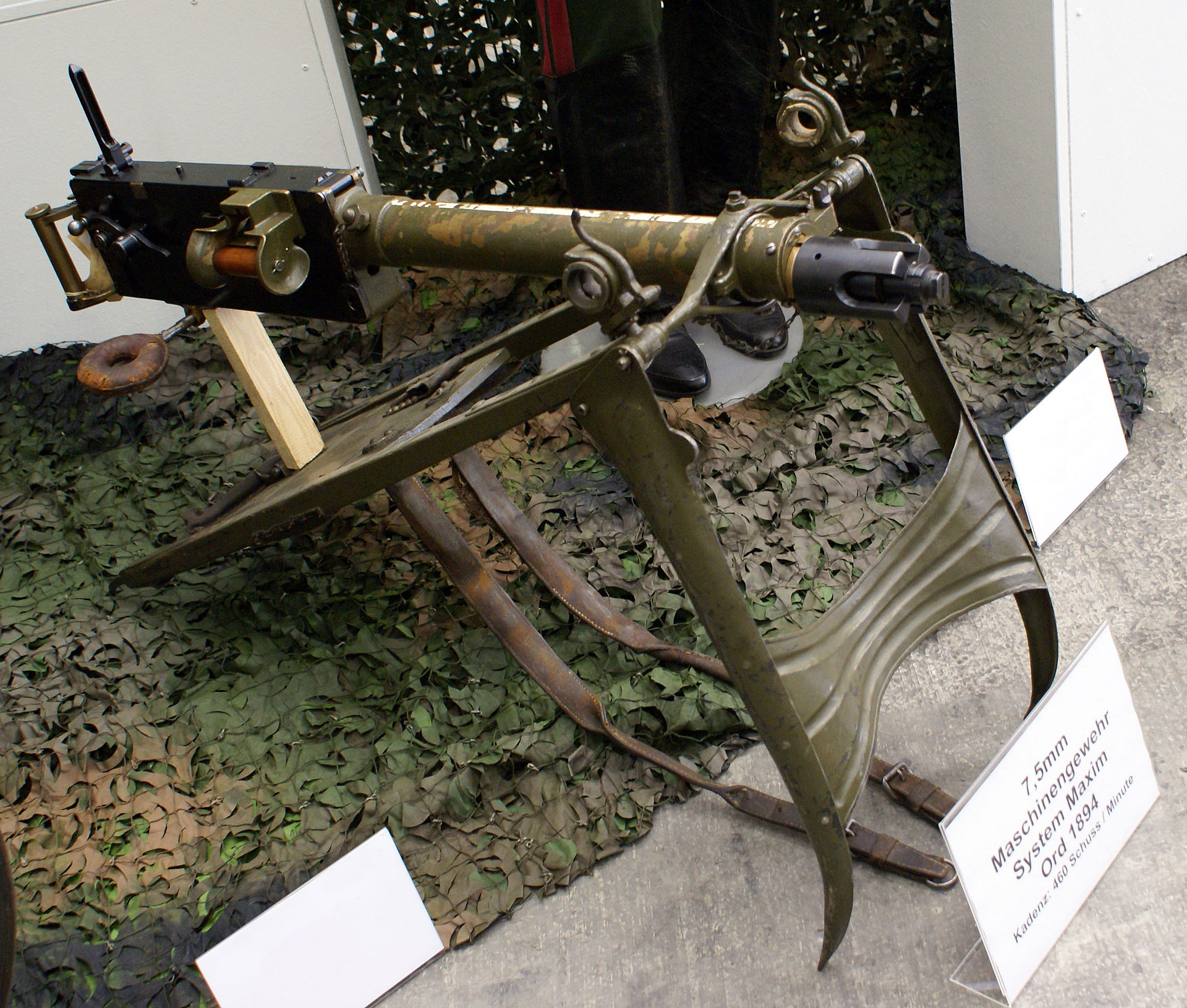

In my research, I encountered many angles of interpretation of why the invasion was such a failure. You bet the command was blamed for crappy leadership; it’s easy to blame it on the guys in charge. I was amused to hear the opinions on the failure differed based on the field of expertise of the commentator. One history video I watched on the subject featured a Geologist’s point of view. I kid you not mes amis, that closing line of the video was to the effect: “And therefore, I maintain that the main reason the invasion of Gallipoli failed… was because of the geology.”
I mean, I have to pick myself up off the floor sometimes. You betcha, the geology did it with the knife in the basement. I mean I totally do get how the geology of the peninsula played a significant role, but let’s not slurp our own schlongs here, rock boy!
Sears and Roebuck, mes amis, did their own study of the ANZAC tragedy at Gallipoli and found that the defeat was due to a lack of painter’s trousers for the troops, a product Sears was tasked with moving in large consignment between the months of April and November of 1915. Sometimes it is just not possible to foresee these shortcomings, I know.
This operation of Churchills was expected to last several weeks. There is a hill just a few miles from the landing beach at point Helles and ANZAC cove called Achi Baba. That was the projected point of advance for the first day. Eight months later, that’s zero eight (08) months later… they were still miles from Achi Baba, and Mother of God hopelessly locked in an absolute trench warfare stalemate that would put the gridlock on the Western Front to shame.
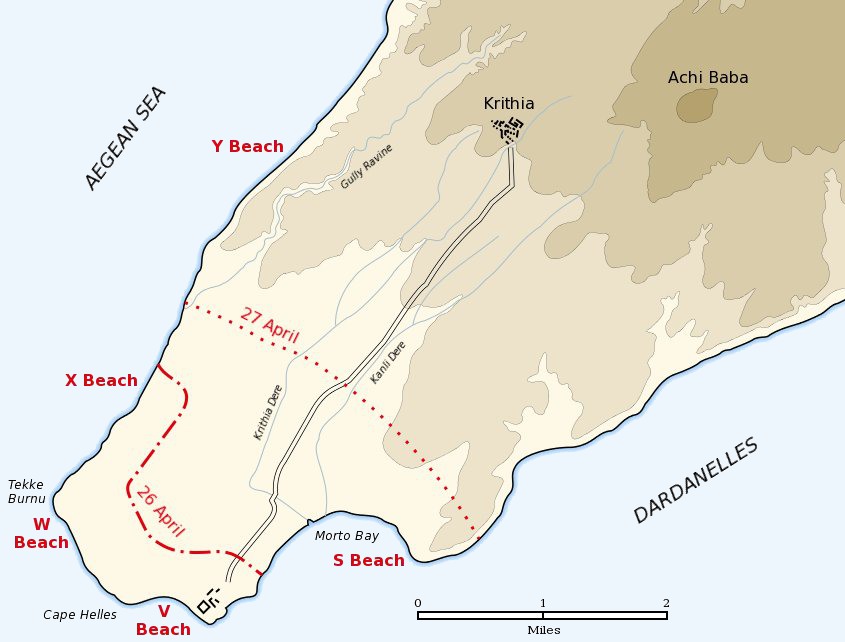
To quote another SOFREP writer: “I would cry if I had any tears left in my eyes.”
It was the embodiment of horror. All ground water on Gallipoli was non-potable. All water had to be brought in by ship. London came to fancy Gallipoli a back-burner issue, and support waned. Men were literally dying of thirst in the searing heat of the Turkish summer.

Charge upon charge from both sides resulted in thousands of corpses littering the no man’s lands. Few were recovered. They lay and distended under the heat of the sun, to the extent that they eventually popped under the pressure of expanding gas. Men often fired their SMLE .303 Enfield rifles at the corpses in hope of winning a premature pop and hasten the decomposition process.
Dysentery.
Corps bring flies, legions and legions of flies. Flies bring Dysentery. More men died of disease than of artillery splinters, the leading cause of combat wounds. Latrines were dug and filled very quickly. In a disturbing number of cases stricken men fell into the latrines and drowned when those around them were too weak to pull them out.
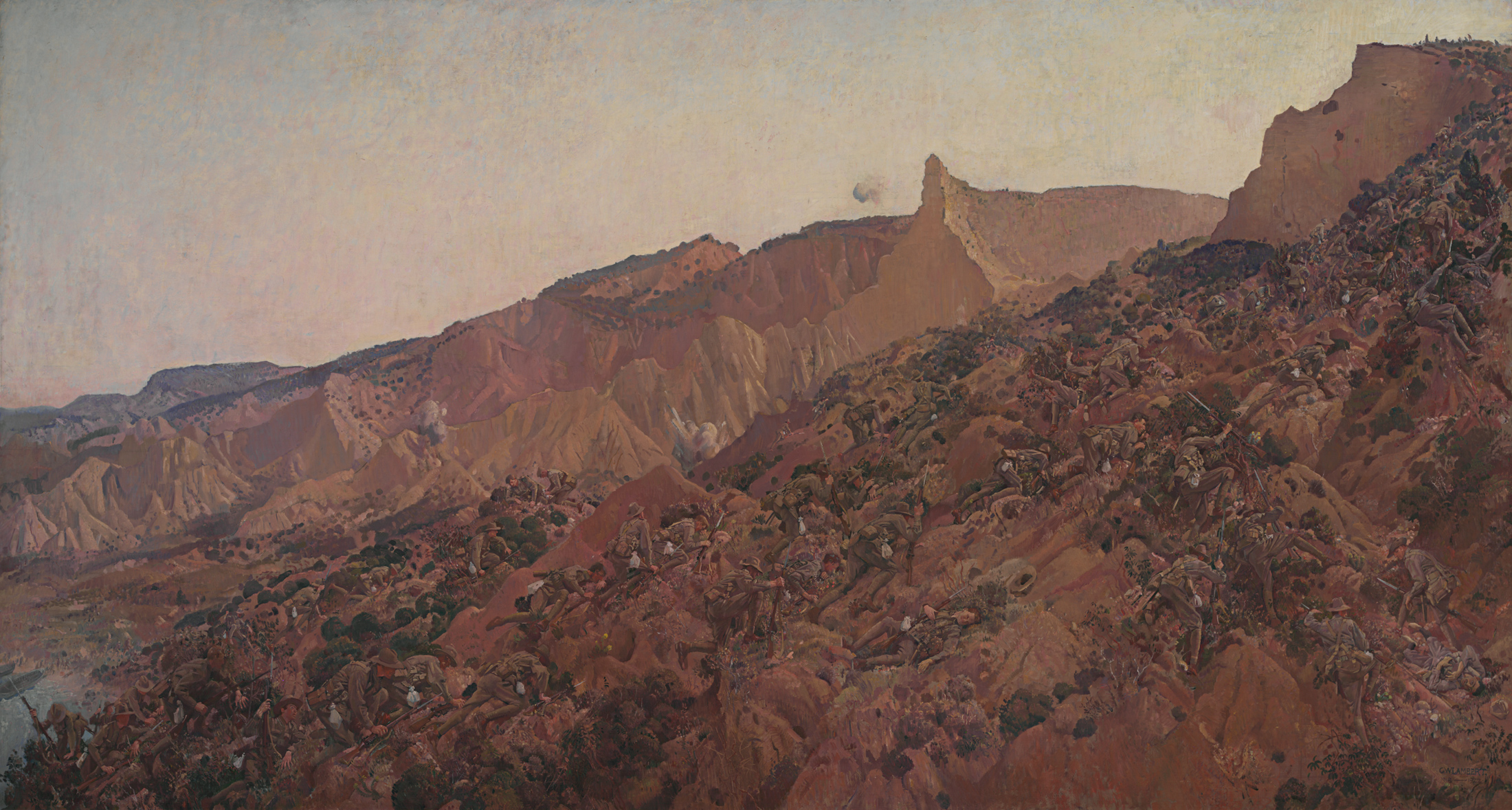
On the plus side… I’m sorry, there was no plus side. But in the name of soldierly ingenuity, the lads managed to create the periscope rifle, an ingenious device that allowed men to remain defilade and still manage a head shot out to 50 meters or more, a typical distance for opposing trenches to be separated.
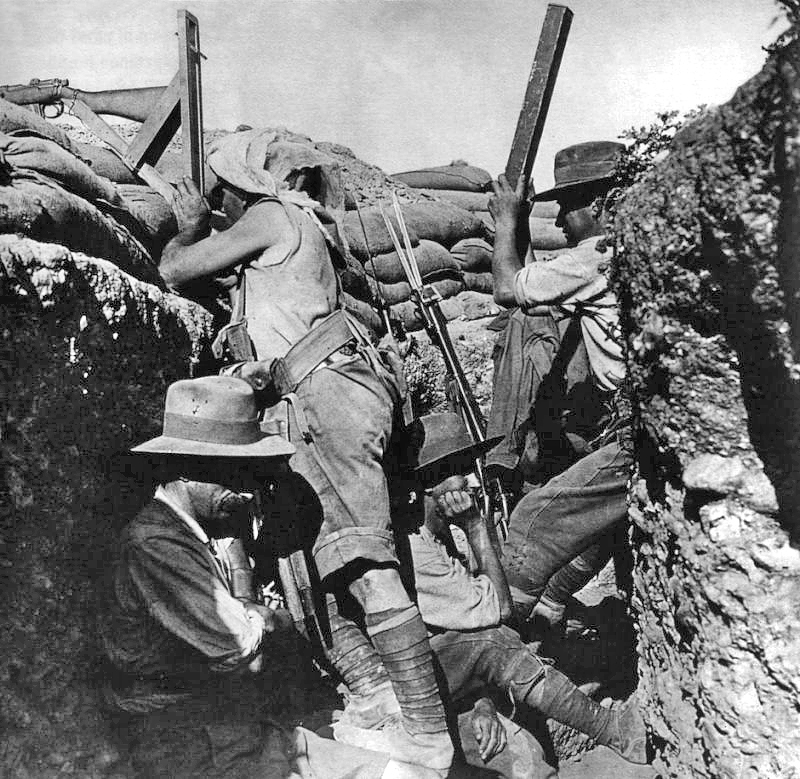
Gallipoli served no purpose other than to bring 450,000 men to an early horrible death. The one book I read on this subject was titled “Gallipoli,” and written by, Alex Moorhead and Max Hastings. I recall a particularly impressive passage that describes how Turkish and ANZAC troops came together on a particular occasion: a recent charge left some 10,000 dead strew about on the grounds between trenches.
The withdrawl of all allied forces from the cruel clutch of the Gallipoli peninsula left thousands of dead corps never to be registered or recovered. That fact is testimony to the level of desperation that the allied forces departed under.
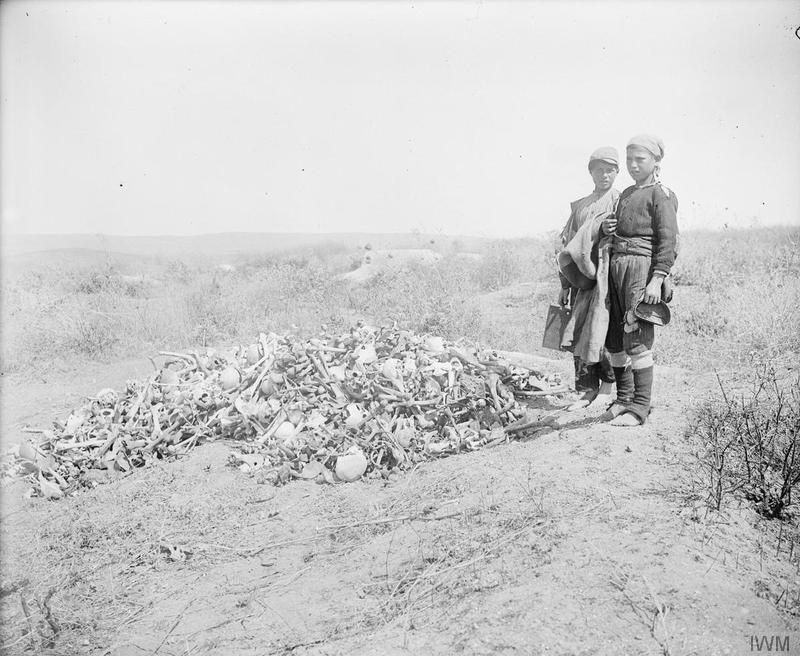
Both sides agreed to an armistice to provide an occasion to inter the sea of corpses, gifting a measure of amelioration from the petrifying stench. As crews busied with burials. A Turkish and ANZAC soldier exchanged words. Said the Turk gesturing to the field graveyard: “This, this is politics,” then gesturing to the vast swath of dead he continued: “…and this, this is diplomacy,”.
By God and with honor,
geo sends
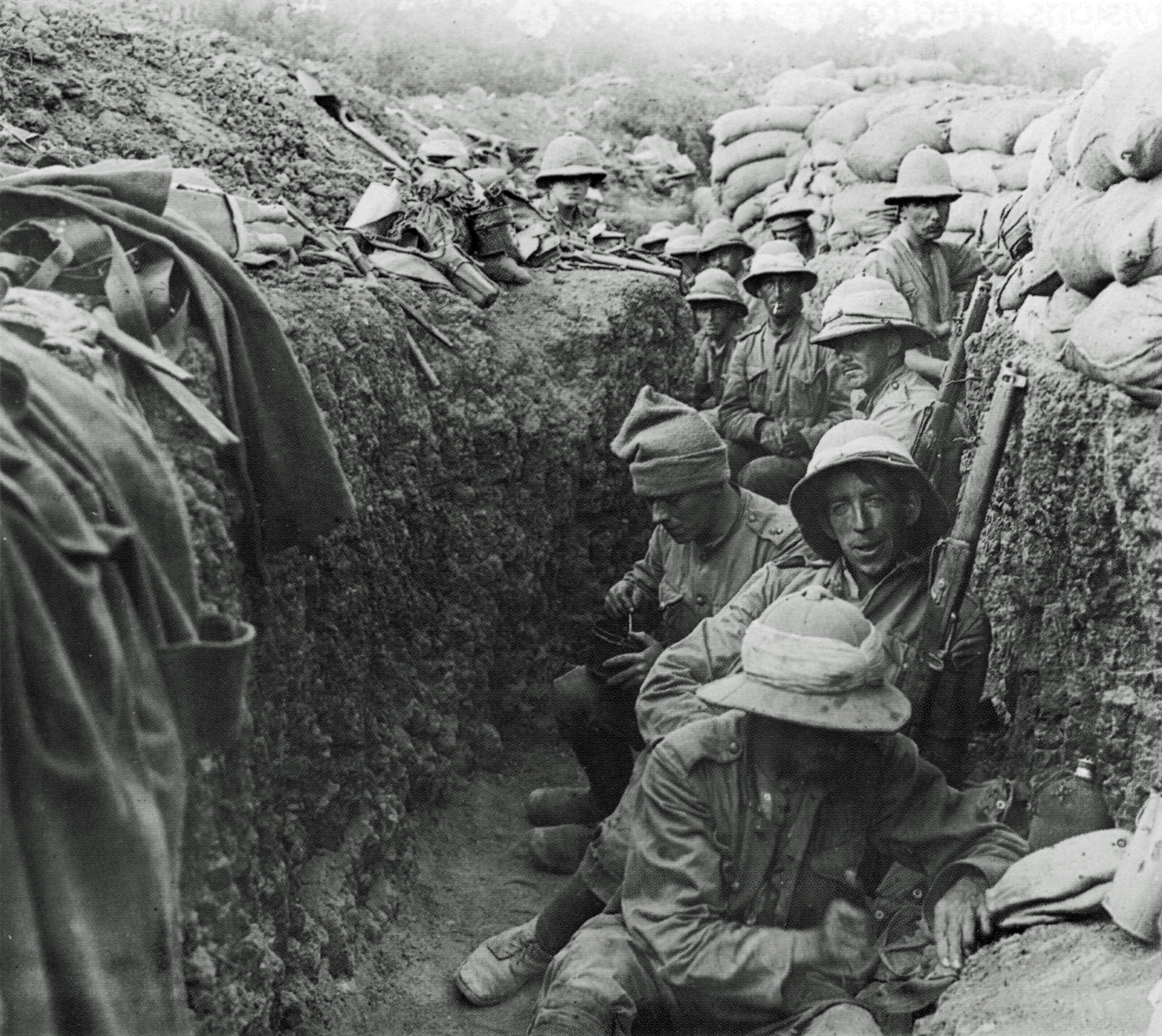
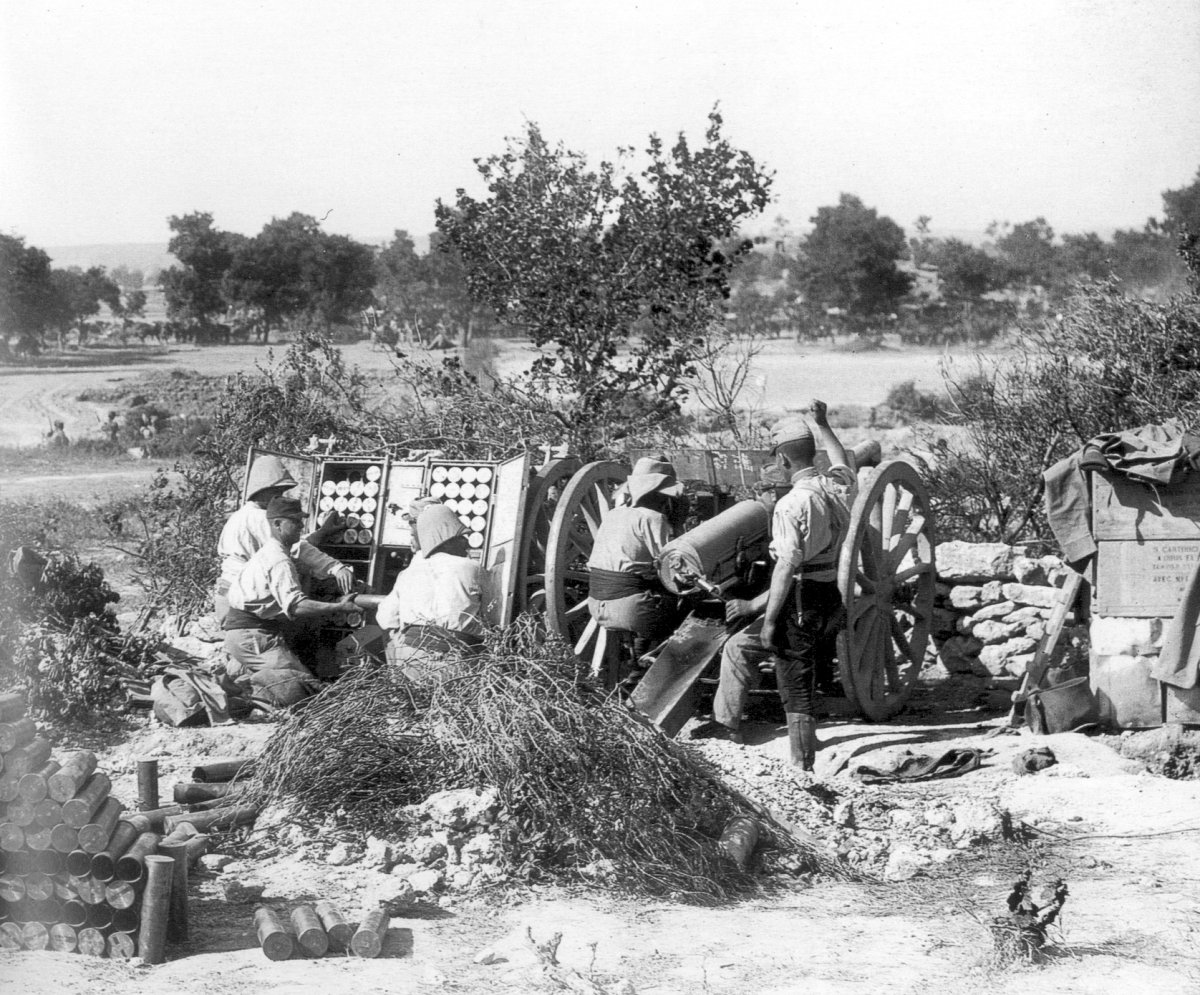
Editorial cartoon courtesy of Robert L. Lang

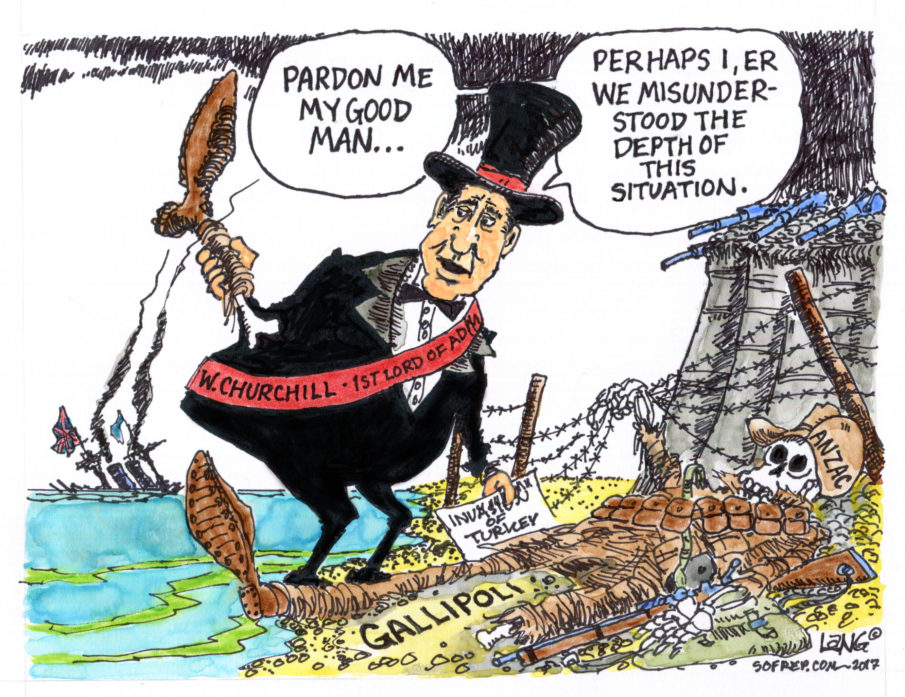








COMMENTS